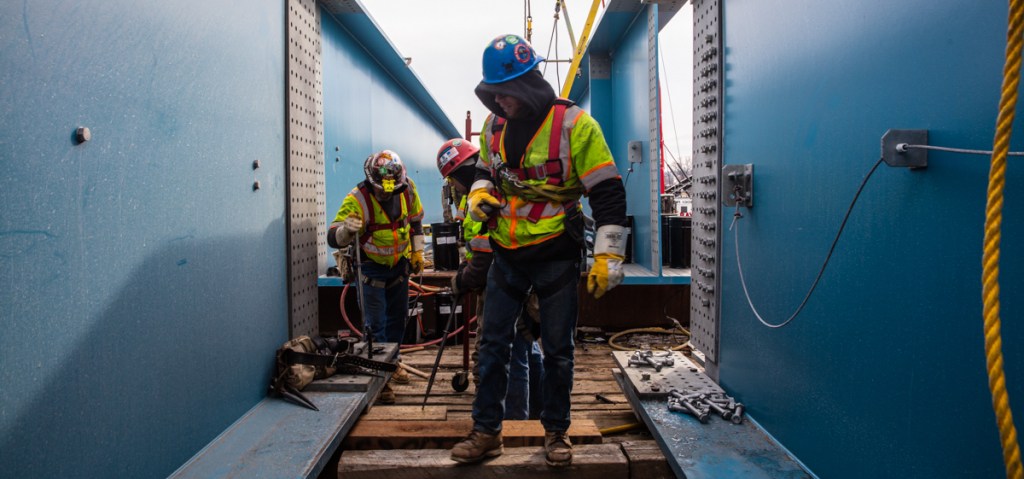
China’s officials have said publicly they want to use U.S. tax dollars to achieve geopolitical aims.
The United States continues to struggle to mitigate the spread of COVID-19, with several states reporting big increases in the number of cases and hospitalizations in recent days.
Along with the public health threat the virus poses, there are growing worries that the economy – which had just started to show some signs of recovery – could now be headed for another downturn. That would be very bad, considering tens of millions of Americans already are out of work and countless businesses have shut their doors forever.
In response, Congress is now considering another stimulus package to help Americans weather the ongoing storm.
Members also are moving ahead with legislation to invest $500 billion in America’s crumbling roads, bridges, transit systems and railways. That measure could be combined into a massive $1.5 trillion bill that would also take on infrastructure like schools and broadband. President Trump also has voiced support for a big infrastructure plan, suggesting that there just may be a path forward here.
Investing in infrastructure right now is a smart move. The United States desperately needs to tackle this work anyway, and doing so will also create millions of jobs and provide a big boost to the economy at a critical time.
But it’s also vital that steps be taken to ensure that the potential trillions in taxpayer dollars spent on infrastructure is reinvested into America’s workers and communities, because China’s regime has plans to seize some of that money to further its own geopolitical ambitions.
We know this because Chinese government officials have been publicly upfront about it.
Researchers Emily de la Bruyere and Nathan Picarsic from Horizon Advisory authored a new report that utilizes primary source documents and statements to examine China’s geopolitical goals in the wake of the COVID-19 crisis.
What they found is that Chinese officials are strategically aiming to use U.S. investments, like the potential infrastructure package, to position China’s state-owned and state-controlled companies to build critical U.S. infrastructure and take over supply chains. Chinese officials also are aiming to target vulnerable assets, part of its larger goal to both siphon U.S. research and development and dominate market share.
Chen Wenling, the chief economist at the China International Economic Exchange Center and director of the State Council Research Office, put it this way: “Trump’s infrastructure investment plan is an opportunity for China.”
China knows its plan can work because it has done it before, the report explains. During the 2008 financial crisis, Beijing accelerated its “Go Out” industrial offensive in the United States, buying up depreciated assets and taking over market share in critical supply chains.
Much of this flew under the radar at the time. Twelve years later, more people are paying attention to China’s regime and its geopolitical aims, and a growing number of U.S. officials and policymakers are even starting to take concrete action in response.
Beijing is aware of this. China plans to get around this challenge is by thinking locally.
“Policymakers should know what China is saying about them,” the researchers write. “Beijing ranks U.S. governors by friendliness to the [Chinese Communist Party]. Beijing tells its companies that Midwest policymakers are impressionable targets who can readily be co-opted. Beijing writes that all US politics are local and therefore that the US cannot defend itself from Chinese incursions.”
Horizon Advisory cautions that China’s goal isn’t to turn around a depreciating asset or turn a profit on a government contract to build a bridge. It wants to dominate markets. Quantity matters.
China’s regime is now positioning its state-owned, controlled and subsidized companies to nab as many U.S. government contracts to build U.S. infrastructure as possible. As we saw happen with rail cars and buses, China is willing to severely underbid on these contracts to win them.
China’s ultimate goal is to dominate entire industries.
Congress must keep this in mind as it moves ahead with both the stimulus and potential infrastructure investment legislation. Making sure strong Buy America provisions are included in an infrastructure package is one way to ensure U.S. taxpayer dollars are reinvested back into the American economy, not given to China’s regime to further its geopolitical ends.
After all, China has its goals, but so should the United States. The money spent on infrastructure has the potential to literally lay the groundwork for a better future, one that will provide good-paying jobs for millions of Americans and improve America’s economic outlook in the decades to come. It’s up to Congress to make sure that the United States doesn't squander this opportunity.
